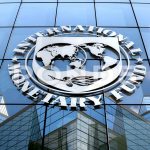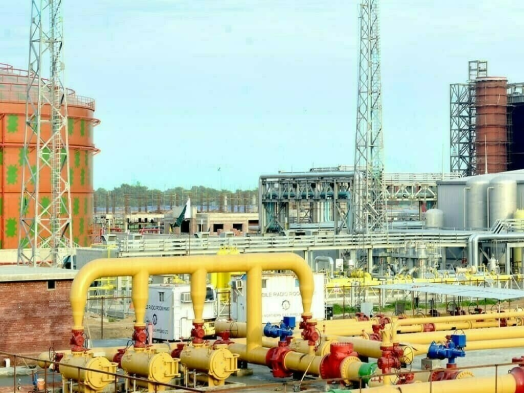Pakistan and the IMF have so far failed to narrow down their differences, so both sides have decided to put completion of the sixth review under the $6 billion Extended Fund Facility (EFF) on hold for the next few months, it has been learnt.
Pakistan and the IMF authorities could not evolve a consensus on the staff-level agreement, so the completion of the sixth review under the EFF was put on hold till September 2021. The IMF Board was scheduled to take up approval of 6th review by July this year. But now it was decided that it would be completed by September if IMF staff showed satisfaction over implementation of conditions and agreed structural benchmarks, top official sources confirmed to The News here on Sunday.
The inability of Islamabad to complete the sixth review of IMF program will have far-reaching consequences for the economy because two program loans having worth of $600 million meant for energy sector and bringing capital sector reforms from the Asian Development Program (ADB) would not be materialized in the absence of letter of comfort from the IMF. However, Pakistani authorities are confident that the much-awaited program loan of $800 million from the World Bank (WB) was on the cards as the WB’s Executive Board was scheduled to meet on June 30, 2021 in Washington, DC, for approving this loan after conceding that Pakistan’s macroeconomic framework was largely stable despite the fact that sixth review was still pending. However, there are two conditions still in pending mode so its disbursement would be linked to fulfillment of these major conditions. The government requires approval of the Council of Common Interest (CCI) in order to fulfill one condition.
This scribe sent out written questions to IMF’s Resident Chief Teresa Daban Sanchez and inquired whether the IMF’s sixth review remained incomplete for July 2021 and was it under consideration to combine the 6th and 7th reviews together by coming September, she replied: “We welcome the strong and constructive engagement with the Pakistani authorities. We stand ready to continue supporting Pakistan to achieve the objectives of debt sustainability and strong and sustainable growth, through the implementation of policies, structural reforms and social spending enhancement envisaged in the EFF-supporting program. As such, we are looking forward to our continued discussions with the Pakistani authorities on the set of policies and reforms that could form the basis for the completion of the 6th review under the EFF.”
The sources said that this reply also indicated clearly the ongoing sixth review under EFF could not be completed yet, so the IMF had decided to adopt “wait and see” policy to ascertain how much the government could deliver on its announced budget for 2021-22.
The passing of budget 2021-22 from the parliament is still going on whereas the FBR slapped highly inflationary taxation to bring Rs383 billion into the kitty. Although, the government had claimed to provide Rs119 billion, so net addition would fetch Rs264 billion into the kitty. But the question arises that how the government could bridge the gap of Rs100 billion which it had withdrawn after announcement of the budget whereby the government imposed increased taxation on mobile calls, SMS and internet usage.
The tackling of cash bleeding power sector has been another bone of contention as Pakistani authorities are refusing to increase tariff and rightly so because it caused an increase in theft of electricity. But other structural reforms such as running DISCOs on professional lines could not provide any excuse to those who did not want to implement any reforms in the power sector.
Meanwhile, former finance minister Miftah Ismail warned on Sunday that the PTI government’s decision to give the Federal Board of Revenue (FBR) powers to arrest people would lead to harassment of citizens.
“FBR’s tax inspectors have been given the right to arrest people. This will not increase revenue, rather FBR will harass people,” said Ismail, in a press conference about the budget. He also said that the FBR is yet to refund Rs700 billion to the people.
The PMLN leader claimed that to the credit of his party president Shehbaz Sharif, the PTI government “made a U-turn” on taxing baby milk and food items. He also claimed that the Imran Khan government has illegally allocated Rs292 billion for privatisation.
Ismail said that the government has earmarked Rs610 billion from the petroleum levy. He said that as per the calculation that would mean that there would be Rs30.50 levy charge.
The PMLN leader said that this would mean an increase in petroleum prices and would ultimately lead to inflation. The former finance minister claimed that the World Bank has stopped its payments to Pakistan.
“These people (PTI ministers) have not met any IMF target in the last two years. They have suspended the IMF programme,” claimed Ismail. He also called on the government to take back the decision to tax the government employees on medical allowance.
Another provision of the proposed law proving that the powers to arrest will be used without any evidence is that if after arrest and inquiry the officer is of the opinion that there is not sufficient evidence or reasonable ground for suspicion against such person, they shall release then upon the execution of a bond, and shall direct such person to appear if so required, before the special judge and request the special judge for the discharge of such person.
The proposed law totally disregards the normal procedure for assessment of tax under the Income Tax law and attempts to introduce a parallel system of inquiry and determination of liability but fails to specify whether these dual systems will operate independently or one will follow the other.
It has to be kept in mind that a similar system of arrest is available under the Sales Tax and Federal Excise laws as the nature and scheme of these laws are entirely different from Income Tax and such powers can be justified for the administration of these taxes.
Meanwhile, in responses to Miftah Ismail’s press conference, Finance Division spokesman said that IMF programme is intact, and a new mission is expected to be fielded in August to review full-year economic performance.
He said that the government is committed to reforms and has done significant progress since the programme was launched and subsequently put on hold because of COVID-19. He said that in March 2021, all missed reviews were completed as Pakistan has rendered a stellar performance under the Fund programme. Tax revenues are about to reach Rs4,700 billion compared to Rs3,862 billion left by PMLN’s government.
He said that forex reserves have increased to $23.4 billion as compared to $16.4 billion left by PMLN’s government and current account deficit has been reduced from $20 billion to a surplus of around $1 billion in Jul-May 2021.
The spokesperson said that the primary deficit was left at 3.8 percent of GDP which this government under the most painful economic conditions has succeeded to reduce to 1.1 percent this year and budgeted at 0.6 percent. After making adjustments of one-off expenditures for COVID-19 and settling past IPP circular debt, this primary deficit is also budgeted to turn to positive 0.1 percent.
He said that Interest rate which was 7.5 percent in July 2018, has been brought down to 7 percent after making necessary adjustments because of the failures of monetary policy under PMLN.
The failure of monetary policy was starkly reflected in the fact that during Miftah’s finance ministership and there was a complete breakdown in government debt market because all borrowings were squirrely sourced from the SBP. Consequently, the SBP debt owed by the government rose from Rs1,400 billion on 30th June 2016 to more than Rs5,000 billion by July 2018, he said.
He said, “It is, therefore, useless to suggest that Pakistan has not done anything about the IMF programme. It is curious to note that the finance minister of the PMLN government who is single-handedly responsible for pushing the country to seek a new programme and destroyed Pakistan’s economy in just one-year by taking the current account deficit to $20b and depreciating the currency by 10 percent together with higher interest rates, is checking the progress under the Fund programme from this government and doubting government’s commitment to reforms.
He said that this audacity and shameless behaviour are the hallmarks of PMLN politics. He said there is absolutely no truth in assertion World Bank loan as only on Saturday, WB approved a loan of $442 million.
He said that the government is highly conscious of insulating the consumers from the vagaries of changes in international prices, particularly petroleum prices. In the last one year, against an increase of more than 100 percent in international petroleum prices, the domestic prices have been increased by around 45 percent. This was done by sacrificing precious non-tax revenue so that the people are not burdened.
He said, “Next year, we are committed to maintain price stability and hope that prices have peaked and would come down and the need for continued subsidy will no longer be required. Furthermore, the possibility of lifting of sanctions on Iran would help reduce international oil prices.”
He said, “We are finalising the agreement with Saudi Arabia for supply of oil on concessional terms which would further alleviate the need for further price adjustments.”
“There is no truth in having such a large amount of refunds due for payment. More importantly, some of the refunds are relating the period when PMLN showed higher revenues by denying prompt payment of refunds,” he said.
He said that this government has ended up paying Rs 40 billion of refunds of that period during the last two years, which was not of its making. He said, “On the contrary this government is paying refunds promptly. This year alone it has paid Rs233 billion in refunds which are 82 percent higher than last year.”
He said that Mr Miftah is misleading the nation by claiming that the government has endowed tax machinery with draconian powers of arrest and harassment. The spokesperson said that Mr Miftah should read to the nation the following passage from the budget speech of the finance minister, which on many occasions he has welcomed publicly.
“We will restore the purity of self-assessment scheme, which would mean that except when there is any ‘definitive information’ contrary to the information disclosed in a tax return, all tax returns shall be deemed as assessment orders;
ii) The returns under self-assessment scheme would only be subjected to audit once they are chosen through an automated risk-based selection procedure;
iii) Furthermore, we would make use of outside auditors for carrying out the audit, which will be done remotely through an e-Audit system;
iv) These audits would be very serious and wilful evasion shall be considered a criminal offense carrying a jail term;
v) We will strive to hit hard on harassment of taxpayers.
• Accordingly, rather than harassing the taxpayers, the avowed purpose of bringing changes in income tax law is to save people from the clutches of the tax machinery and create simplicity and certainty in the tax system.
• The Finance Minister, when addressing the Senate’s finance committee has announced that the power of arrest would be circumscribed to be exercised not by an additional commissioner but a committee headed by himself.
He said that Mr Miftah is again mistaken on setting the surplus of Rs570 billion from provinces. The level of surplus committed by the provinces is done by their voluntary commitment.
“More importantly, this money is not something given by the provinces to the federal government. It is something that is kept by the provinces in their own bank accounts to be used in subsequent years.





